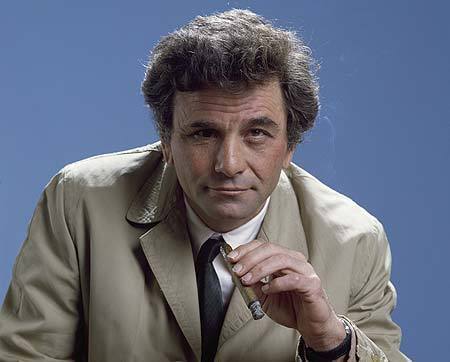I watch a lot of movies. So many, actually, that I often run out of current and recent movies and wind up re-watching those I've seen many times before. At least those are easy to find: I have three dozen boxes, each holding 26 DVDs, scattered around the house, plus God knows how many more DVDs on and underneath the bookshelves here in my home office. It's enough to make my wife scream. Thank goodness I'm a great husband in all other respects (he said modestly).
Anyhow, I recently rewatched The Quiet Man, a lighthearted John Wayne/Maureen O'Hara movie set in Ireland, which on the one hand is not my usual kind of movie and on the other hand is one that I always enjoy. And it occurred to me, when it was finished and the credits were rolling, that this well-known and award-winning film was adapted not from a novel but from a short story, first published by Maurice Walsh in The Saturday Evening Post in the early 1930s. Whoodathunkit?
That, of course, got me thinking about other film adaptations from the short stuff. And since I had an upcoming and uncompleted SleuthSayers column that needed to be completed . . .
Here are my highly-biased (and always changing) picks for the ten best movies adapted from short stories:
1. It's a Wonderful Life -- from "The Greatest Gift," Philip Van Doren Stern
2. Rear Window -- "It Had to Be Murder," Cornell Woolrich
3. High Noon -- "The Tin Star," Mark Casper
4. Bad Day at Black Rock -- "Bad Day at Honda," Howard Breslin
5. The Quiet Man -- "The Quiet Man," Maurice Walsh
6. Hondo -- "The Gift of Cochise," Louis L'Amour
7. The Killers -- "The Killers," Ernest Hemingway
8. The Swimmer -- "The Swimmer," John Cheever
9. 3:10 to Yuma -- "Three-Ten to Yuma," Elmore Leonard
10. The Curious Case of Benjamin Button -- "The Curious Case of Benjamin Button," F. Scott Fitzgerald
Five runners-up: The Birds ("The Birds," Daphne du Maurier), Stagecoach ("The Stage to Lordsburg," Ernest Haycox), The Tall T ("The Captives," Elmore Leonard), The Secret Life of Walter Mitty ("The Secret Life of Walter Mitty," James Thurber), Million Dollar Baby ("Million $$$ Baby," F.X. Toole)
Continuing with this idea of short fiction to screen, the following are my picks for the ten best movies adapted from novellas:
1. The Shawshank Redemption -- from Rita Hayworth and Shawshank Redemption, Stephen King
2. Stand by Me -- The Body, Stephen King
3. The Thing -- Who Goes There?, John W. Campbell, Jr.
4. The Mist -- The Mist, Stephen King
5. Apocalypse Now -- Heart of Darkness, Joseph Conrad
6. Silver Bullet -- Cycle of the Werewolf, Stephen King
7. Hearts in Atlantis -- Low Men in Yellow Coats, Stephen King
8. The Old Man and the Sea -- The Old Man and the Sea, Ernest Hemingway
9. The Man Who Would Be King -- The Man Who Would Be King, Rudyard Kipling
10. The Snows of Kilimanjaro -- The Snows of Kilimanjaro, Hemingway
NOTE: Yes, I like Stephen King.
Five runners-up: A River Runs Through It (A River Runs Through It, Norman Maclean), Minority Report (The Minority Report, Philip K. Dick). The Fly (The Fly, David Cronenberg), Breakfast at Tiffany's (Breakfast at Tiffany's, Truman Capote), Shop Girl (Shop Girl, Steve Martin)
Breaking news: I was reminded, by SleuthSayer Joseph D'Agnese's column yesterday, of several more good movies that started out short: Arrival, All About Eve, Brokeback Mountain, etc. (Joe, do great minds think alike, or what?)
Okay, which ones, Faithful Readers, did I leave out? Which do you think shouldn't have been included? Have you writers had any of your short stories or novella-length fiction adapted for the movies or TV? (For me, no.) Anything pending or promising? (No.) Any near-misses? (Yes.) Sold any film options? (Yes.) Do you have cinematic hopes for future projects? Who knows, right?
Who knows, indeed. If you're like me, and none of your fictional creations have made it to the big screen, don't lose hope. Hold steady, stick to the plan, maintain the course.
Anything's possible . . .











































